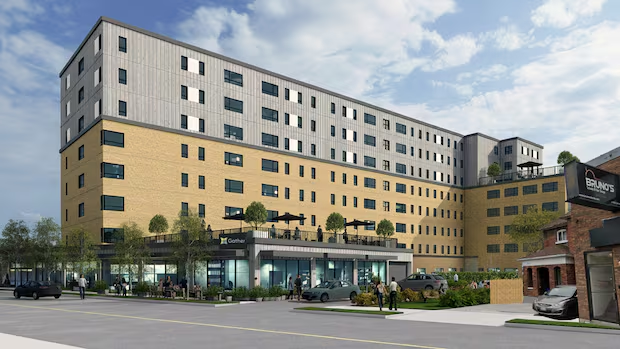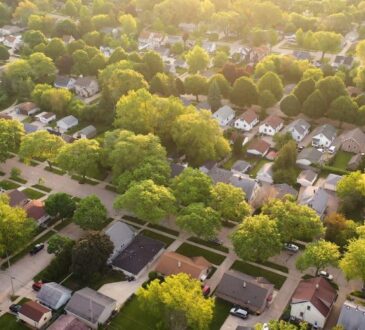Hamilton affordable housing project looks for investments big and small with launch of community bonds

Listen to this article
Estimated 4 minutes
The audio version of this article is generated by text-to-speech, a technology based on artificial intelligence.
For a new affordable housing project, a non-profit builder is turning to Hamilton residents to help get it off the ground.
On Dec. 3, anyone who is able can invest in “community bonds” for a 164-unit building on King Street E.
It’s among the first projects by Gather Housing Communities — launched in May as part of social housing provider Indwell’s “family” of companies, said Michael Brathwaite, senior associate of impact investing.
The minimum investment is $1,000 over three, five or seven years, said Brathwaite. Rates of return range from 3.75 to 4.85 per cent depending on the amount and length of maturity.
“The beauty of the community bond is it really is designed to be accessible to a huge portion of your community,” Brathwaite said.
“It does get people able to contribute to positive social projects and feel like they’re doing something.”
Filling the ‘missing middle’
Gather Housing is looking to fill the “missing middle” of affordable housing — geared to people who are working but earning less than Ontario’s median income of $90,000, he said.
For its first Hamilton project, its goal is to raise $15 million within two years to cover pre-construction costs such as the design work and city approvals, he said.
The apartment building at 1907 King St. E. will be 10 storeys and most rental rates will cost 30 per cent of the household’s income, said Brathwaite. A third of units will be eligible for city subsidies to make them “extra” affordable.
Traditional financing for non-profit housing is “very expensive,” or banks are unwilling to provide any, Brathwaite said. And federal and provincial funding is usually available only once a site is ready for construction.
Government programs usually reimburse pre-construction costs afterwards, which Indwell and Gather Housing can use to replace the bond financing, freeing up that capital to get started on more projects, Brathwaite said.
“We’ve found community bonds are a really great way to involve supporters, raise funds and get these projects on track to their long-term [government] financing,” he said.
Research before investing important: expert
Indwell did its first community bond program in Hamilton in 2024 to great success, Brathwaite said. It raised its $5 million goal, plus an extra million dollars, from 96 individuals and corporations.
The money went towards pre-construction costs for four affordable, supportive housing projects — Acorn Flats, Century Manor, Ottawa Street Apartments and Stonehouse Apartments.
As Canada’s affordable housing crisis drags on, some non-profits are borrowing directly from neighbours to bankroll rental unit construction through a new financial tool called ‘community bonds.’
Now the projects are almost ready to start building, he said.
Community bond programs are gaining popularity in Canada for affordable housing, as well as music venues and renewable energy projects.
A portfolio manager, Patti Dolan, told CBC News last year that people need to research the organization before investing to ensure there’s a source of cash flow. She noted community bonds aren’t independently evaluated by credit rating agencies.
In Gather Housing’s case, that cash flow is through the government funding it plans to eventually receive, which doesn’t have to be paid back.
Nearly a year ago, Hamilton’s housing secretariat said his office is looking at creating its own municipal bond program.
The city did respond by publication about if any progress has been made on such a program.





